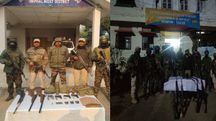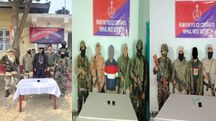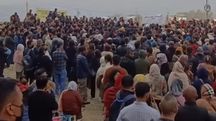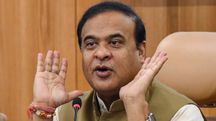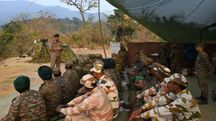Will The Blast From the Past Blur The Future?
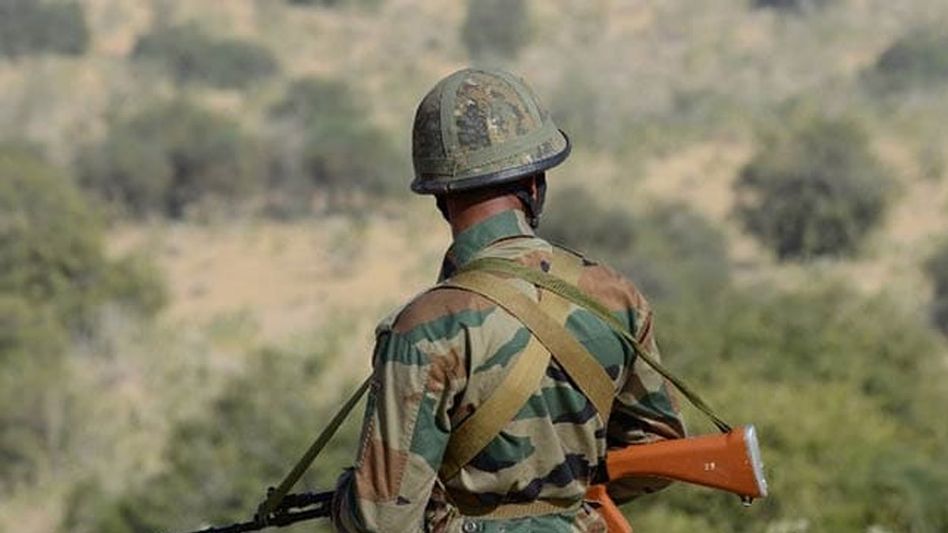 Will The Blast From the Past Blur The Future?
Will The Blast From the Past Blur The Future?The prolonged insurgencies and separatist movements based on demands to carve out Assam from the Indian nation-state, has led to loss of countless lives, destruction of properties and resources. The implementation of AFSPA (Armed Forces Special Powers Act) to check the insurgency movements also failed. Followed by, was the inherent racism towards the northeast states coupled with the refugee influx post 1971 war with Pakistan. The apathy, discrimination and complete neglect of the decision-makers in the centre could also be highlighted in one of the incidents of the centre taking oil from the oil-fields of Digboi in upper Assam, and refining it at the refinery in Barauni, Bihar. A 2,500 kms pipeline was laid between upper Assam and Barauni for the transportation, and the logic given was that it was easier to transport the refined oil and petroleum products from Bihar to the other parts of the country and the world. But, for the Assamese, they felt that the real reason was to impress India’s first president, Shri Rajendra Prasad. The president wanted to grow industries in Bihar, and India’s first prime minister, Jawaharlal Nehru and his cabinet ministers fulfilled his demand through the oil business, exploiting the natural resource of Assam land for another. This is one instance which the people of Assam have not forgotten, but as some sort of compensation, a small refinery was set up in Noonmati, Guwahati to equate the sentiment. However, this did not please the Assamese natives and led to the first cause of agitation in Assam. There were more other forms of resentment along with the ongoing agitation, such as the perceived imposition of the Bengali language since British rule; and the voter discrepancy alleged to have included a number of foreigners in the voters list leading to the anti-foreigners movement in 1979. Unhappy with no-outcome from the peaceful agitations, and the hope to capitalize on the anti-central government sentiments within Assamese, the ULFA rose to prominence in most parts of rural upper Assam. They started to function as the de-facto government. Upon winning the confidence of the Assamese, the ULFA also began collecting taxes from tea gardens owners, businessmen including other central government installations.
During the ‘Assam Agitation’ of 1979-85, a rough estimate of around 855 people were martyred in the counter-insurgency operations. Many men and women including the youth gave up their life for a cause which they believed was necessary to make Assam, an inclusive and prosperous state of the natives and minorities. This was the main genesis for the many insurgent groups to rise in Assam, with the belief in the idea for a separate independent homeland for the Assamese from India - but an idea that the union government had been disapproving. As a result, the sky grew black as the torches got lit in protest of the large killings carried out by the law enforcement and police to smoke out the insurgents and their sympathizers in the 1990s. The lines between authorities and the civilians increasingly got blurred and the rules of engagement got murkier and deadlier.
After years of unrest due to the civilian agitation and ULFA’s dominance, the government decided to strike back with ‘Operation Rhino’ in 2001. To an extent, with the help of AFSPA, the operation successfully decimated several ULFA cadres and their underground operations. A rough estimate of about 11,000 local Assamese youth were documented killed in the counter-insurgency strike. Meanwhile, another insurgent group called the Bodoland Liberation Tigers grew stronger, and even more aggressive calls for sub-national sentiments were formed that gave birth to the National Democratic Front of Bodoland (NDFB). The NDFB and it’s association groups were behind many heinous crimes including the 2008 serial blasts which killed about 88 people and injured around 500. Normalcy was wrecked, jobs were lost, economic activity came to a standstill, people were out on the streets as they shouted and marched for getting their fair share in the nation’s journey towards development. These lost years of the young people not only made them unemployable, but the resulting atmosphere of tension and surveillance left many with no food to eat, and thus moving to different places in the country looking for greener pastures, or they resort to joining the banned outfits.
Seeing the weak internal security to maintain law and order situation, many companies refused to set up industries or were closing down. The existing ones battle to fend off kidnappings and extortions. The lack of resources for the state government to monetize had encircled with debts from international agencies, and as a result, the center declared Assam as one of the most underdeveloped and disturbed states in India. The crisis also withheld salaries for government employees and left unpaid for months, which then led the employees to resort to street-protest. The NDFB outfit or the Bodos group began demanding a separate state from Assam, alleging of administrative apathy in Dispur, and desired to carve out Bodoland from areas in southern Assam districts of Kokrajhar, Baksa, Chirang and Udalguri districts. Despite many ups and downs broiling over a decade, the leaders of the Bodos outfit eventually embraced the peace process and returned to mainstream life. It is commendable that, infact, many banned outfits - small or big - in Assam have come out to tackle their issues through a democratic means such as participating at the peace talks. While during this procedure of the peace process, some extent of peace was maintained in the state. This relief brought a great sense of hope for all. But unfortunately, the ULFA’s split into independent anti-faction could remain a threat. The unwillingness to forgo the past will only invite catastrophic outcomes. The blood spilled in the name of civilian agitation, insurgencies, separatists movements in Assam - directly or indirectly has resulted in the loss of opportunities for a generation of youth who otherwise would have been self-reliant, educated and independent to make their choices in life. It is time for every civilian or to say the Assamese native to act like a statesman. The past must be kept in the past, we must no longer permit that to blast the gateway of the future progressions. ULFA (I) commander-in- chief, Paresh Barau must not stand in the way of Assam’s future. The hope and the expectation of the younger generation to be part of a better Assam cannot be shattered in the unwillingness of the ULFA (I) chief to come forward for the peace-process. Barua has the chance to act like a statesman and wane off his self-obsessed goals for it's been long due. Barua must come about as a leader taking pride in the small steps to progress, and respect the youth’s aspiration to rebuild Assam-free of insurgency. As for me, an innocent bystander during the crisis of 1990’s Assam, I would wonder helplessly about those lost lives and their families, how they had survived or may not have, but the hope to expect a better Assam for all is a given birth-right for every Assamese. For all that was worth, or will be worthy, it is wise not to turn the clock back and nurture the relative peace achieved so far, and reassure in our hearts and minds that the blast from the past is a past and it has opened our eyes to act towards a better future to come.
Pratas Saharia is a Research Analyst and Content curator at The Truth.
Copyright©2026 Living Media India Limited. For reprint rights: Syndications Today



